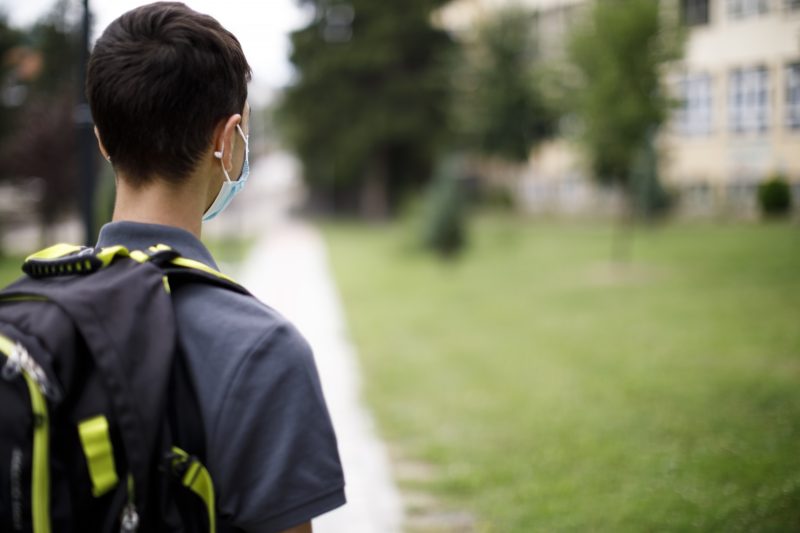
COVID-19 has taken the world by storm and has disrupted our lives as we knew it. For kids, their activities being cancelled or severely modified, mask wearing and social distancing has left some feeling scared, anxious or at the very least unhappy.
Stress and uncertainty can lead to unpleasant effects, such as stigma about certain people. Unfortunately, some kids may come face-to-face with negative attitudes and beliefs toward those who contract COVID-19 — making it in many ways the new modern-day cooties.
“Obviously, the focus and attention COVID-19 gets in the news, in our homes and on social media makes it difficult to think of much else,” said Dr. Kevin Triemstra, a pediatric psychologist in Akron Children’s Lois and John Orr Family Behavioral Health Center. “Kids know that it’s a serious and very contagious illness, so it’s not surprising that COVID-19 has become a verbal weapon for kids.”
Not to mention, the very thing families are doing to keep themselves safe — social distancing — is opening up the door for teasing and ostracizing people. In addition, kids could have it without exhibiting any symptoms, so it’s easy to make any child a target for teasing.
The ugly truth of stigma is the harmful effects it can cause. It can make kids more likely to hide their symptoms or avoid seeking treatment immediately for fear of being judged by others. If it continues, stigma can affect a child’s self-esteem, and cause anxiety or even depression.
Dr. Triemstra offers ways parents can help stop stigma from entering their homes and their children’s playgrounds.
- Knowledge is power. Stigma is associated with a lack of knowledge about how COVID-19 spreads, fears about the disease, rumors and myths. Educate your children on what it is and how it spreads, and dispel myths. Share factual information about symptoms and how to stay safe by washing our hands, wearing masks and social distancing.
- Speak up against stigma. Correct negative language you hear about COVID-19 and any hurtful remarks toward certain groups of people. Let your kids know that we are all working towards being safe because anyone can contract COVID-19 — no matter their gender or ethnicity.
- Express gratitude. Offer gratitude to healthcare workers, first responders and others working on the front lines to help normalize the disease for kids.
- Model empathy. Our adult reactions are the first line of defense. Model empathy for those who have tested positive for COVID-19 and make sure your first response is positive toward that person. Instead of saying, “Well, we can’t be around that person for a few weeks,” you could send a get-well card or call the person to tell them you hope they feel better soon.
- Keep a consistent routine. Normalize your child’s life by keeping a daily routine that provides structure and predictability so your kids thrive even in uncertain times.
- Remain calm. If you’re constantly complaining or stressing about the current situation, your kids will follow suit. As a parent, process your own negative feelings or anxiety with other adults and not around your children.
 Are there COVID-19 cooties in your backyard?
Are there COVID-19 cooties in your backyard?
You can’t help your child if you don’t know what’s happening on their playground or social groups. Start the conversation by asking your child questions about what she is seeing and hearing. You can say, “I heard kids are getting teased about COVID-19, have you seen that?” Or, “If someone were to tease you about possibly having COVID-19, what could you do?”
In some situations, kids may do things unintentionally that could hurt someone’s feelings. For example, if another child is coughing, she may ask that child not to sit next to her out of fear.
Discuss with your child what’s right and what’s wrong on how we treat others, while still remaining safe. Tell her that there are many people who will test positive, but we still should treat them with respect.
“By asking questions and having the conversation, you can find out whether it’s happening in your backyard and whether your child is struggling,” said Triemstra. “It’s a teachable moment to share how we treat others, and if there is a problem, it’s a great way to offer your support and come up with a plan together on how to handle the situation. Remind your children we’re all in this together.”










